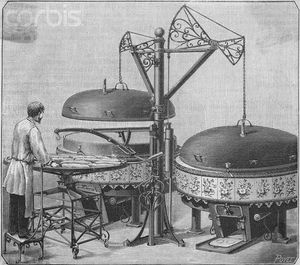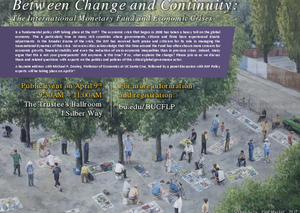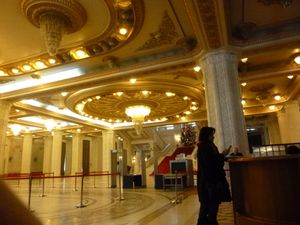Working paper revising scholarship on dependent market economies
Recent contributions to the comparative political economy of East European capitalisms have found that a distinctive variety of capitalism emerged in some new EU member states. The new variety has been dubbed “dependent market economy” (DME). This paper makes several contributions to this literature. First, it marshals evidence to show that this institutional variety now includes the political economy of Romania, a case previously excluded from it. More importantly, this analysis also finds that earlier scholarship on dependent capitalism has failed to capture crucial mechanisms of dependence created by transnationalized finance. Third, the paper suggests that some of the arguments made in the existing scholarship on the interests of foreign capital with regard to domestic innovation and labor training need to be qualified. Finally, by showing reflexivity towards select critiques of the dependent market economy framework, the analysis proposes by this paper is a self-limited attempt to bridge the differences between the varieties of capitalism and Polanyian analyses of capitalist diversity in semi-peripheral middle-income states.
Available on ssrn at: http://papers.ssrn.com/sol3/papers.cfm?abstract_id=2233056
Cornel Ban_dependent market economy
Discussion (3) | March 18th, 2013 Categories: Uncategorized
Article on German Ordoliberalism and its Diffusion in Postwar Spain
I just published this in History of Economic Ideas, XX, 3, 2012
Economic historians regard Ordoliberalism as a school of thought whose reach was limited to Germany. Challenging this popular view, this study shows that Ordoliber- alism also had considerable impact on Spanish economics during the 1940s and 1950s, despite the fact that Spain’s policy establishment favored a state-led and predominant- ly antiliberal development model. This puzzling outcome was the result of the excep- tional ideational entrepreneurship of Ordoliberal economist Heinrich von Stackel- berg, who was a visiting professor in Madrid from 1943 until his death in 1946. His intellectual entrepreneurship in the Spanish economic profession proved to have lasting consequences, as the policy-oriented intellectuals he influenced came to occu- py leading positions in academia and economic policy institutions. This paper also contributes to the empirical literature on the diffusion of economic ideas across na- tional epistemic boundaries by highlighting the role of exceptional economists acting as carriers of new economic ideas. Finally, the study helps illuminate a critical junc- ture in the intellectual history of Spanish economics during the Francoist regime.
.
ordoliberalism_spain_proofs BAN(1)
Discussion (0) | March 10th, 2013 Categories: Uncategorized
Hosting workshop on the IMF since Lehman: What has changed and what has stayed the same
Together with my colleague Kevin Gallagher I convened a workshop on the IMF since Lehman. We ask: What explains the variegated pattern of stability and change in the IMF’s substantive and procedural positions? Do existing explanations of the IMF’s reactions to previous crises survive the test of the current crisis, whose distinctiveness consists of its unprecedented size and its deep impact on the developed European core? Have the established patterns in IMF’s differential treatment of its members changed relative to past crises?
Grigore Pop-Eleches from Princeton University will do a systematic comparison of the crisis-ideology connection in IMF programs before and after 2008. Leonard Seabrooke and Emelie Nilsson from Copenhagen Business School undertake to examine changes in the IMF policy cliques tasked with international financial surveillance. André Broome from University of Warwick asks what roles have economic ideas played in IMF bailouts in a select population of crisis episodes while Cornel Ban of Boston University examines the role of staff research in facilitating the partial revisions of the IMF’s stance on fiscal policy. Aitor Erce Dominguez (Bank of Spain and Universidad Autonoma de Madrid)
studies how the relation between the Fund and sovereigns' creditors while Daniela Gabor (Bristol Business School) looks at the Fund’s changing positions on monetary and macroprudential issues. Sarah Babb from Boston College and Alex Kalentekis from Harvard University will write a framework article that reflects on the findings of all these papers.
The workshop is funded by our university's Center for Law, Policy and Finance.
Schedule:
IMF Workshop Schedule (draft)_cb edits
Discussion (0) | March 10th, 2013 Categories: Uncategorized
Working paper on the diffusion of economic ideas under authoritarianism
The nexus between economists, state and society has emerged as one of the most fertile areas of research on how economic science is shaped by institutions and viceversa. One of the main insights of this literature is that the interaction between domestic economists and their counterparts in the Western epistemic core has become a driving force in shaping the boundaries of the domestic economic profession and of the policy sphere.The evidence for this argument is compelling but its ambit is limited to regional contexts where the ideas being imported served the economic policy agenda of powerful domestic actors. Latin America’s “Chicago Boys,” to take a familiar example, were encouraged and even bankrolled by powerful business and state actors from their home countries or from abroad. But such alignments between dominant interests and the new ideas did not exist elsewhere. Consider the case of Eastern Europe during the Cold War. Here, the economic profession was so tightly regulated by an ideologically anticapitalist state elite that open advocacy for Western economic ideas hostile to the political economy of state socialism often entailed professional costs and, in some of the more repressive regimes, it even led to political persecution. How did diffusion take place this political context and what factors powered and respectively filtered diffusion dynamics? To address these questions, this paper examines the case of Romania, a country where the poverty of the neoclassical tradition before the war would lead one to expect a lot less diffusion of Western economics than in East-Central Europe. At the same time, the paper suggests that geopolitical openings facilitating East-West scientific exchanges enabled the emergence of practices of diffusion of Western economics among critically minded economists.
Discussion (0) | March 10th, 2013 Categories: Uncategorized





